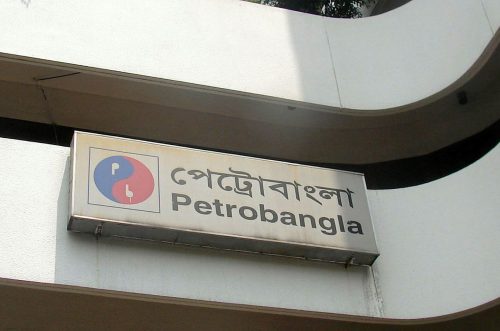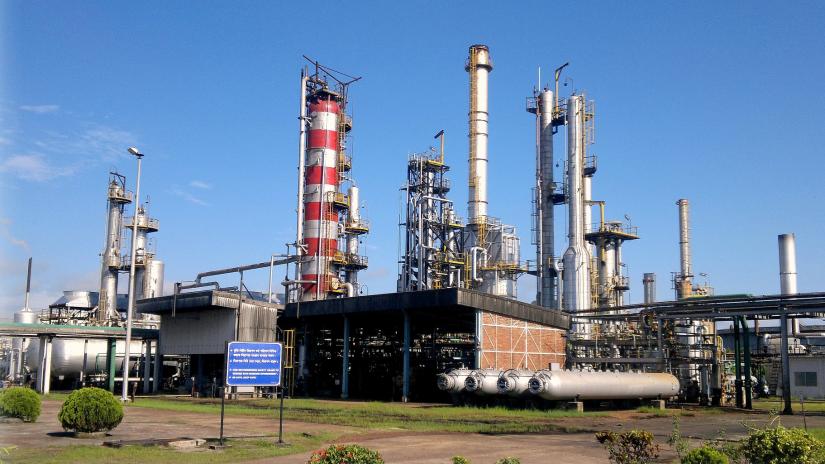Bangladesh has resumed red diesel imports from India after a 3-year hiatus, as part of a deal signed between Bangladesh Petroleum and Indian Oil.
Bangladesh Petroleum received the first shipment of the total deal, which provides for the supply of about 333,000 metric tons of red diesel (a low grade of diesel) with a sulfur content of 0.005%, 40,000 metric tons of A-1 jet fuel, and 20,000 metric tons of Gasoline 95, until December 2023.
The refined petroleum products will be transported by ship, as seen by the specialist energy platform, citing S&P Global Platts.
This comes in light of the expectations of Bangladesh Petroleum Company to import about 7.69 million metric tons of refined products in 2023, an increase of 18.3% from 6.5 million metric tons in 2022.
Bangladesh Petroleum will get about half of all refined oil through the international bidding system, and the remaining half through negotiations between governments with oil suppliers around the world.
suppliers of refined petroleum products
With the listing of Indian Oil, Bangladesh Petroleum now has 9 listed suppliers of refined petroleum products under government arrangements.
The list includes the Kuwait Petroleum Corporation, the Malaysian company Petco Trading Labuan, the Emirates National Oil Company, the Chinese PetroChina Company, the Indonesian company P.T.
Indian Oil had previously supplied the country with about 430,000 metric tons of red diesel with a sulfur content of 0.005%, 50,000 metric tons of A-1 jet fuel and 30,000 metric tons of 95-petrol during the period from July to July. to December 2020, after winning a bid launched by Bangladesh Petroleum.
Bangladesh Petroleum normally issues bids twice a year to secure imports of refined petroleum products, from January to June and from July to December, to stabilize premium rates.
It also entered into negotiations with the selected suppliers twice to set oil prices.
Red diesel imports through the pipeline
Bangladesh Petroleum is also set to import 0.005% sulfur-containing red diesel from India through the Friendship Pipeline starting from mid-March, according to the company’s chairman, APM Azad, to the S&P platform. B Global Platts” earlier.
The cross-border oil pipeline runs 125 kilometers through Bangladesh and 5 kilometers through India, passing through Panshagarh, Nilphamari and Dinajpur districts to the Parbatipur oil storage facility in Bangladesh.
Once the pipeline is operational, Bangladesh will stop importing red diesel by rail from India.
“The construction of the pipeline, which started in early 2020, has finished and the facility is now waiting to be commissioned to transport red diesel from India,” Azad said, adding that the pipeline start-up date is set for March 18, 2023.
Bangladesh currently imports about 2,200 metric tons per month of red diesel containing 0.005% sulfur from the Indian Nomaleghar refinery, through the West Bengal Railway, and then the Bangladesh Railway to transport it to the Parbatipur oil depot in the north of the country.
Azad said pipeline red diesel imports would be cheaper and more efficient than rail supplies.
He explained that the pipeline is likely to initially carry about 250,000 metric tons annually of red diesel under the agreement between the two countries, noting that the volumes will gradually rise to 400,000 metric tons annually during the first 5 years, and may rise later to about one million metric tons annually.
He added that red diesel import volumes could also be adjusted periodically at the country’s request, and imports might be extended beyond the agreed 15 years according to mutual discussion.
ExxonMobil in Bangladesh
In another context, Bangladesh is studying a proposal from ExxonMobil to explore hydrocarbon blocks in untapped deep waters in the country under a new production-sharing contract model, in addition to carrying out oil and gas exploration in some onshore blocks, said Petrobangla Chairman Zinendra Nath. Sarker, to S&P Global Commodity Insights.

ExxonMobil is also in talks with government officials to secure exploration rights for all 15 deepwater blocks located in the Bay of Bengal, said a senior official in the Energy and Mineral Resources Division of the Ministry of Electricity, Energy and Mineral Resources.
In its proposal, the American company seeks to first sign a production sharing contract before conducting two-dimensional seismic surveys within two years, and then complete the acquisition, processing and interpretation of three-dimensional seismic data within the next three years.
If awarded, it would be a major deal for Bangladesh; ExxonMobil will have to invest several billion dollars to locate the new reserves; This could boost the country’s dwindling foreign exchange reserves and help meet its growing demand for energy.
New conditions for attracting investments
In a bid to attract foreign investors, Bangladesh is set to offer international oil companies an enhanced production share, and the right to export natural gas after meeting domestic demand, in future offshore exploration projects.
Under new contracts, Petrobangla will buy natural gas from foreign exploration contractors at more than three times the current price of about $2.75/mmbtu, raising the price that pegs the same standard used to buy LNG without a cap.
Under the proposed pricing formula, Petrobangla’s offer price to IOCs would be around $10/mmbtu, taking into account the price of Brent crude, which is hovering around $85 per barrel.
In a draft model expected to be used in the next bidding round, Petrobangla proposed reducing the government’s share of “dividend gas” to around 40-70%, from 55-80% previously.
Petrobangla Chairman Zinendra Nath Sarkar said the new PSC model is expected to be approved by the Bangladesh Cabinet Public Affairs Committee by the end of March.
related topics..
Also read..

Leave a Reply